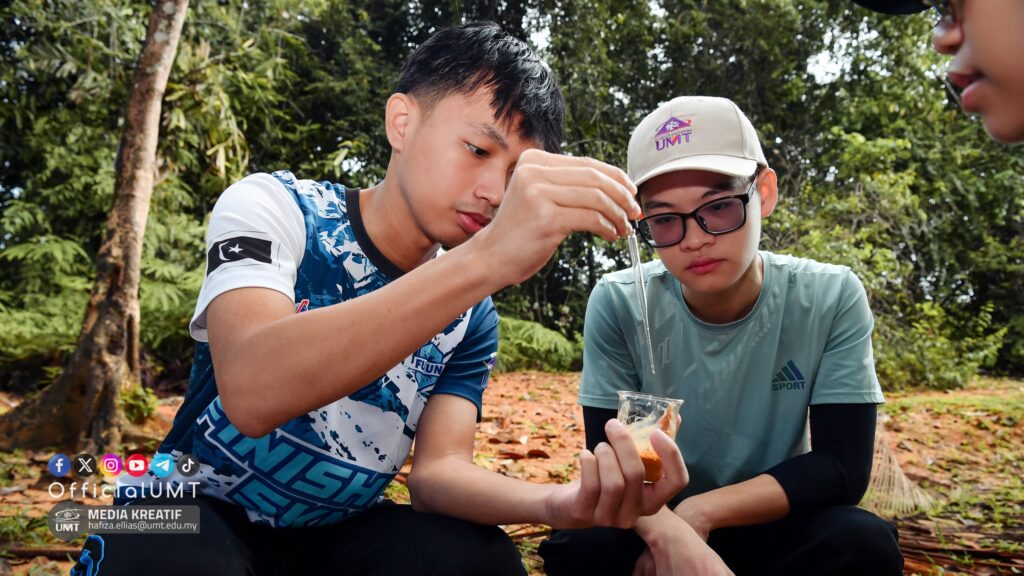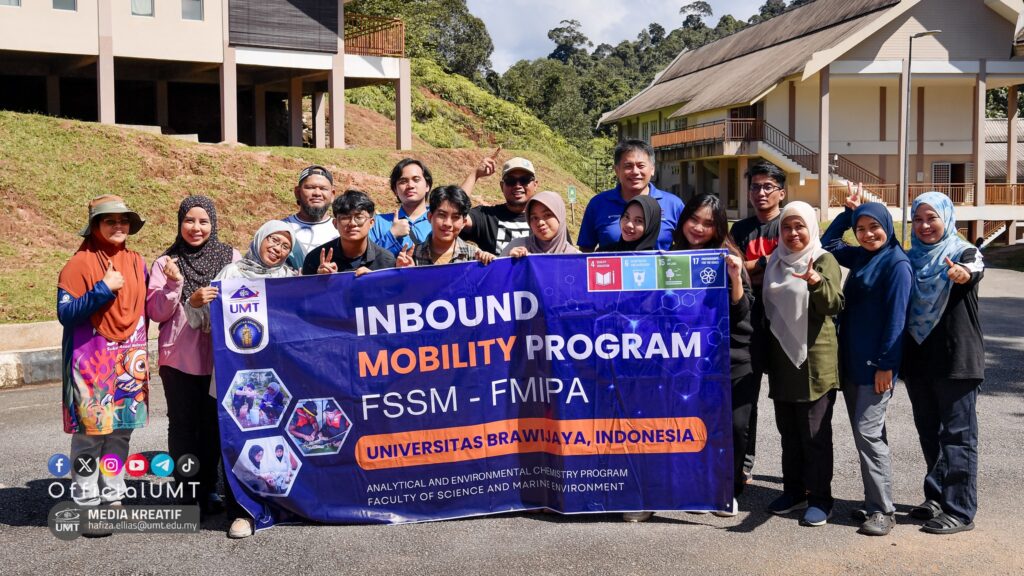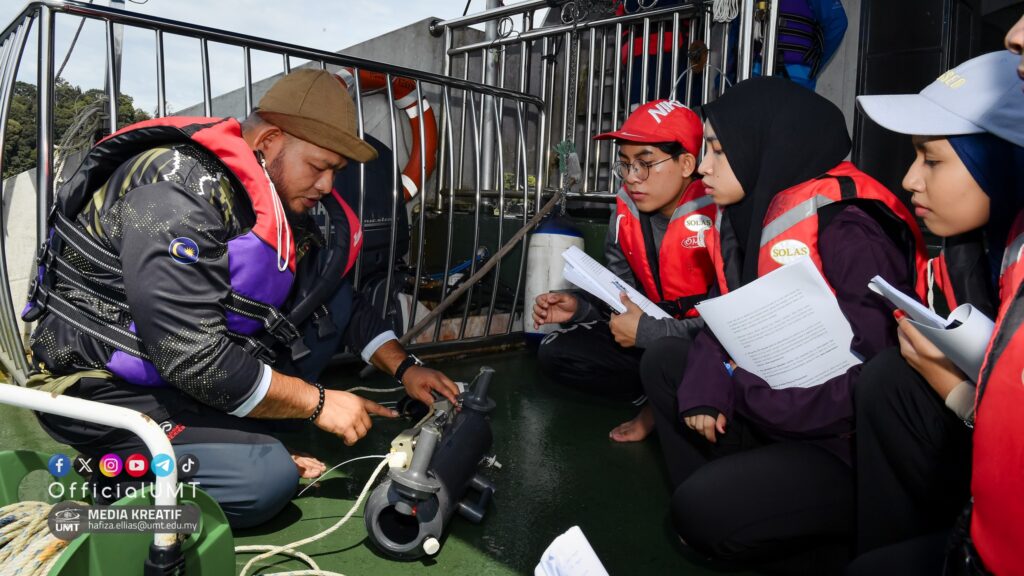


Bridging Boundaries: AEC Inbound Mobility with Indonesia’s Universitas Brawijaya
Tuesday, 13/05/2025
Share This Article :
By Dr. Maisarah Binti Jaafar and Assoc. Prof. ChM. Dr. Azrilawani Binti Ahmad @ Othman
The Inbound Mobility Programme between Universiti Malaysia Terengganu (UMT) and Indonesia’s Universitas Brawijaya (UB) offers a dynamic opportunity for students to merge theoretical learning with hands-on experience in Environmental Chemistry and Analysis. This programme has strengthened the collaboration between the Analytical and Environmental Chemistry (AEC) programme at UMT’s Faculty of Science and Marine Environment (FSSM) and UB’s Department of Chemistry.
For this year’s International Inbound Mobility III (SSM4963) course that was recently held, six third-year UB students embarked on a 3-credit hybrid learning journey.
The programme commenced with two-day, expert-led virtual lectures, introducing students to key environmental monitoring and analytical techniques concepts. The students then participated in laboratory sessions focused on analytical instrumentation at UMT, followed by hands-on environmental fieldwork at the Kenyir Biodiversity Research Station (KBR), accompanied by their lecturers, Prof. Dr. Barlah Rumhayati and Mrs. Ellya Indahyanti. This fieldwork, conducted from 9 to 13 April 2025, was integrated with the Introduction to Environmental Analysis (AEC3733) course, a core subject in the AEC program.
The students collected and analyzed air, water, and soil samples both in-situ and in field laboratories, while also conducting a topographic survey to better understand the landscape and its ecological features. This fieldwork proved invaluable for environmental analysis, as students gained essential skills in environmental monitoring and analysis. Their exposure to real-world analytical instruments and sampling techniques greatly enhanced their applied understanding of environmental challenges.
The students also explored UMT’s cutting-edge research during their visit to the INOS Gallery, which showcases the university’s expertise in marine and aquatic research. This visit enhanced their appreciation of UMT’s significant contributions to impactful environmental research.
The students continued with an additional 14 days of interactive virtual lectures, further solidifying their theoretical foundation in environmental chemistry and analysis.
UB students and lecturers shared positive feedback, particularly on the hands-on laboratory sessions and immersive fieldwork at Kenyir. The practical experience was not only enjoyable but also crucial in deepening their understanding of environmental analysis. Prof. Barlah Mrs. Ellya praised the well-structured integration of theory and fieldwork, noting its strong impact on student learning and engagement. The participants strongly encouraged the continuation of this mobility initiative.
This collaboration is not only bridging boundaries in education but also creating lasting opportunities for international learning and research. Not only does it serve as a springboard for future academic and research collaborations, but it also supports the UN Sustainable Development Goals: Quality Education (SDG 4), Clean Water and Sanitation (SDG 6), Life on Land (SDG 15), and Partnerships for the Goals (SDG 17).
